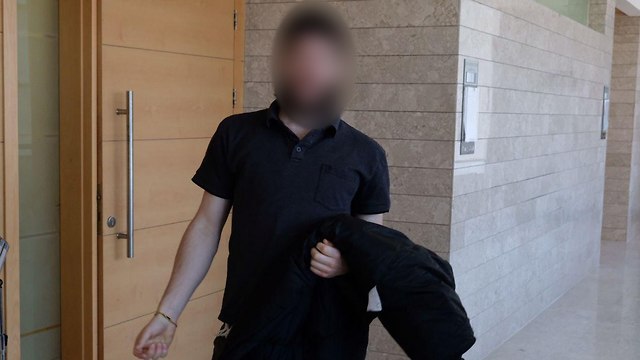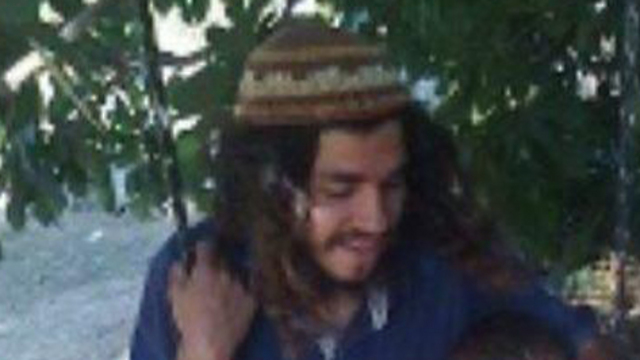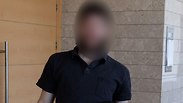

Jewish terror defendant strikes plea deal in 2015 murder of Palestinian family
he unnamed young man, a minor during the 2015 arson attack that killed the Dawabsheh family, confessed to conspiring to commit a crime motivated by racism; prior confession to Shin Bet agents was disqualified as ruled extracted under duress
Riham and Saad Dawabsha were killed along with their 18-month-old son Ali in an arson attack on their West Bank home in July 2015. Their other son, Ahmed, who was then 5, was severely burned in the attack.
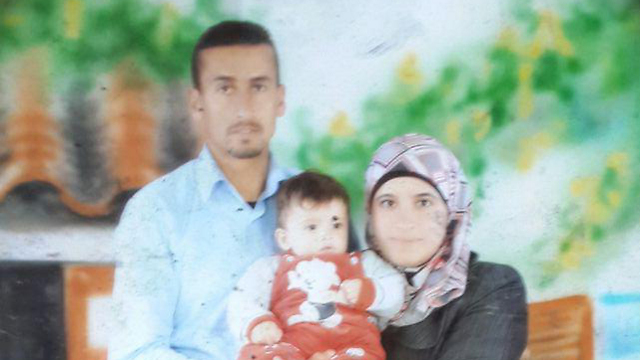
The plea bargain convicts the young man of conspiring to commit a crime motivated by racism. However, the indictment was amended to define the crime as arson, not murder, as stated in the original indictment.
The defendant confessed to the crime, and the state requested a prison sentence of five and a half years.
The defendant's' attorney, Adi Keidar of Honenu, a legal aid organization that helps Israelis accused of crimes against Palestinians, said that "the plea bargain and the indictment set a precedent for an Israeli court. It disqualifies the defendant's prior confession and determines it was collected from him using severe violence."
"The court criticized the Shin Bet security service and the State Prosecutor's Office (for their behavior)," said Keidar. "The new indictment is entirely different and has no trace of harming so much as a hair on a person's head. It is entirely unrelated to the murder in the village of Duma (of the Dawabsha family).
"It's time that the defendant tries to recover… We hope that one day, he'll be able to share the horrors he has been through during the Shin Bet investigations," said Keidar.
The State Prosecutor's Office said that the young man "wasn't charged of being involved in the murder scene to begin with, but rather with the planning of the attack," and added that "the defendant's distance from the scene makes it hard to prove an intention to kill, necessary to convict him of conspiring to murder."
The State added that the new indictment determines that the young man was a member of a terror organization.
On January 2016, the State Prosecutor's Office indicted the defendant, a resident of a West Bank settlement who was 17 at the time, for involvement in the murders of the Dawabshe family.
The unnamed defendant was originally indicted of conspiring to murder and for taking part in planning the crime. He was also indicted for six other crimes not related to the Duma murders.
Amiram Ben-Uliel, then 21, from Jerusalem, was directly charged with the murders of the Dawabshe family, and confessed to the crimes.
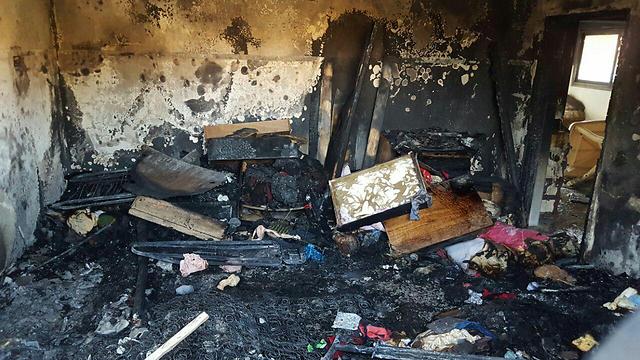
Ben-Uliel is currently held for 3 counts of murder for hurling a Molotov cocktail into the bedroom of the sleeping Dawabsheh family.
Ben-Uliel also faces two counts of attempted murder, arson and conspiring to commit a hate crime.
Both defendants denied the charges against them during trial, despite their confessions during the investigation, and Ben-Uliel's reenactment of the murder. Both claimed that confessions were extracted using violence.
On June 2018, the court determined that the confessions of the two men, made on a specific day during the investigation process, were extracted by force and would be disqualified. However, other parts of their testimony, collected on all other days of the investigation, remained eligible to be used in trial.














